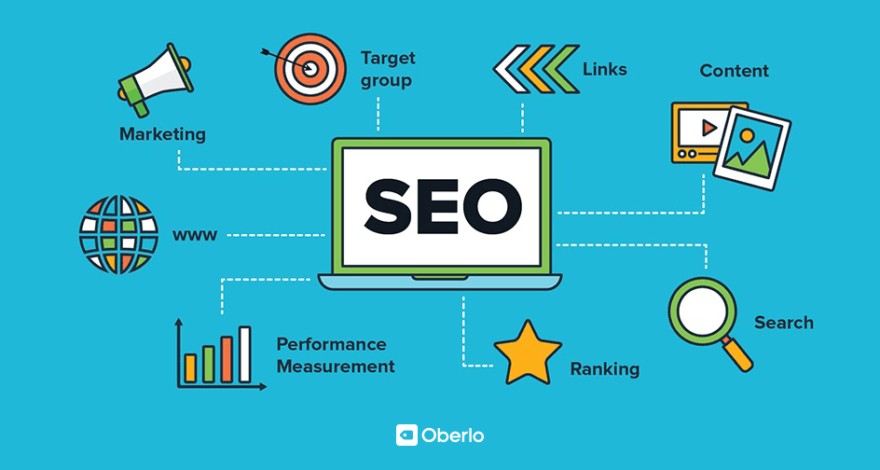Hey There! Today, I'm here to explain SEO and why we must rank on Google.
If you're a marketer or blogger, you've probably heard of SEO at some point in your life. And promoting your website is actually one of the fundamental requirements. And that is what, I'm going to teach you in this blog.
What Is Search Engine Optimization, or SEO?
Search engine optimization is referred to as SEO. In plain English, it refers to the process of enhancing your website to raise its visibility when users search for goods or services associated with your company on Google, Bing, and other search engines. You are more likely to attract attention and draw in new and returning clients to your business the more visible your pages are in search results.
How does it work?
Search engines like Google and Bing use bots to crawl online pages by moving between sites, gathering data about them, and adding them to an index. Imagine the index as a massive library where a librarian could pull up a book (or a web page) to help you find what you're currently looking for.
The order in which pages should show in search results for a particular query is then decided by algorithms that examine sites in the index while accounting for hundreds of ranking criteria or signals. In our hypothetical library, the librarian is the one who has read every book there and can identify the exact one that will contain the solutions to your problems.
Our SEO success factors can be viewed as stand-ins for many user experience elements. It's how search engine robots calculate how well a website or web page can provide the searcher with the results they're looking for.
SEO specialists must put in the work since, unlike paid search adverts, you cannot buy search engines to appear higher in organic search results. We can help with that.
Each of the six key categories in our Periodic Table of SEO Factors is weighted according to how important it is to SEO. For instance, the fundamental elements of content optimization are content quality and keyword research, and the major elements of site layout are crawlability and speed.
The most recent version of the SEO Periodic Table also features a list of Toxins that are harmful to SEO best practices. In the past, when search engines' algorithms were significantly less complex, these shortcuts or tactics may have been sufficient to ensure a high position. At least until you are discovered, they may even continue to work for a short while.
The brand-new Niches part of our website delves deeply into the SEO success criteria for three important niches: local SEO, news/publishing, and e-commerce SEO. You can succeed in search results for your small business, food blog, and/or online store by understanding the specifics of SEO for each of these Niches, even though our overall SEO Periodic Table will provide you with the best practices.
Users should expect an effective search experience thanks to the search algorithms' goal of surfacing authoritative, pertinent information. Your pages can rank higher in the search results by being optimized with these criteria in mind for your website and content.
What makes SEO crucial for marketing?
Because individuals make trillions of searches annually, sometimes with a commercial goal to learn more about goods and services, SEO is a crucial component of digital marketing. When it comes to digital traffic for companies, search frequently serves as the main driver and supports other marketing channels. Your bottom line may be materially affected by increased visibility and a higher search result ranking than your rivals.
But over the last few years, search results have changed to give consumers more direct responses and information that is more likely to retain them on the results page rather than sending them to other websites.
Also, keep in mind that search engine features like Knowledge Panels and Rich Results can improve visibility and give users more details about your business right in the results.
In conclusion, SEO serves as the cornerstone of a complete marketing ecosystem. Knowing what your website visitors want will help you make improvements to your campaigns (paid and organic), website, social media presence, and other areas.
In conclusion, SEO serves as the cornerstone of a complete marketing ecosystem. Knowing what your website visitors want will help you make improvements to your campaigns (paid and organic), website, social media presence, and other areas.
Thanks for Reading!
Tags:
SEO


